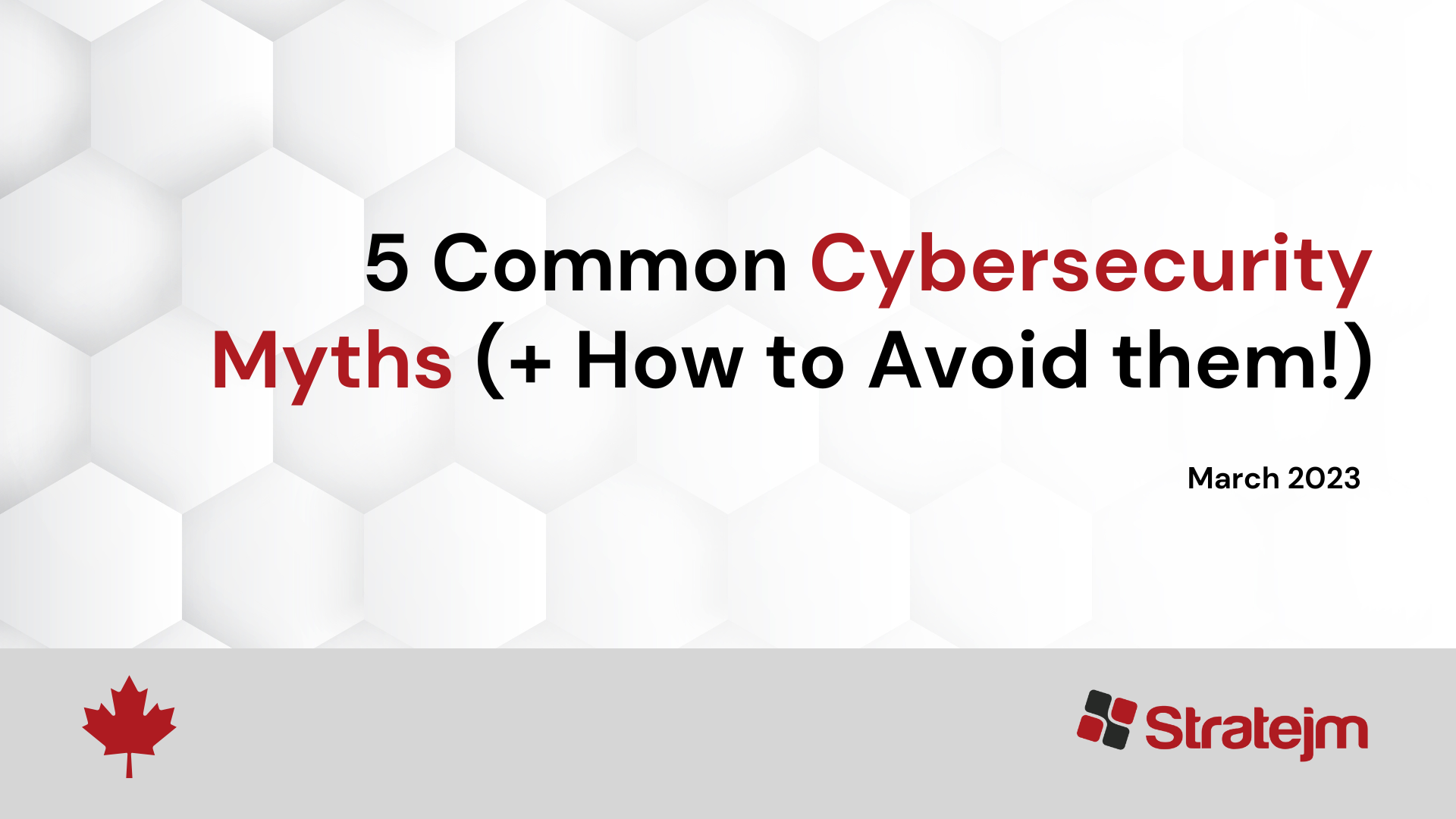
5 Common Cybersecurity Myths (Plus How to Avoid them!)
It should come as no surprise that cyber attacks have only grown more frequent in 2023. With the rise of AI and machine learning technologies, the number of data breaches is only expected to increase.
With this in mind, we are still finding that many still hold on to cybersecurity misconceptions that hold them back from taking the proper steps to safeguard their confidential information.
Remember, even the most high-end security tools are still susceptible to human error – it only takes one person to click on a phishing email to potentially compromise your core systems.
Now is the perfect time to review your own device policy and dispel some of the cyber security myths that may exist in your organization.
Here are the most common cyber security myths you should be aware of:
5 Common Cybersecurity Myths Your Business Should Be Aware Of
Antivirus and Firewalls will Protect my Business
The Myth: By installing antivirus software and other security measures, I now have an airtight security toolkit that will prevent cyber criminals from accessing my sensitive data. This means I can relax when it comes to cybersecurity best practices and employee training.
The Truth: Even with strong passwords and security software, there’s still a lot that can go wrong. Antivirus software is based on outdated, signature-based technology that detects threats based on “known threats”. In other words – they are completely useless against previously unknown vulnerabilities like Zero Days.
In fact, “known threats” are no longer the preferred cyber threats used by threat actors. Other, more effective means are usually preferred.
Ransomware attacks, for instance, are a kind of cyber attack where sensitive data is encrypted, and a ransom demanded to regain access. Antivirus software can do nothing to prevent this sort of attack, and incidents have only grown increasingly common
For this reason, it is recommended invest in proper cybersecurity software from reliable providers with stronger safeguards.
My Data isn’t Worth Anything
The Myth: Many small businesses make the false assumption that their data isn’t particularly valuable and therefore not worth stealing. After all, if cybercriminals are going to go through all the trouble and risk of carrying out cyber attacks, they might as well target large-scale businesses with important files.
The Truth: This is simply false. According to a 2021 report on data breaches, 43% percent of small businesses reported at least one cyber attack during the previous year.
There could be many reasons for this unfortunate trend – maybe small businesses are a popular target since they are more likely to have less robust security systems in place. The end result though is that small business owners need to take the steps necessary to protect themselves.
We Have Strong Passwords to Protect Us From a Data Breach
The Myth: I have taken the time to create a strong password which should protect me from hackers looking to access my sensitive data.
The Truth: Passwords alone can no longer be relied upon to safely secure your data. Here are some common ways a hacker can gain access to your password:
- Password Theft
- Brute Force Password Guessing
- Hash Cracking
- Unauthorized Password Resetting
For these reasons, it is highly recommended that two-factor authentication is used. This is a great way to add an additional layer of defence by forcing an additional token of verification before granting access.
Installing Security Software Will Slow Down my Workflow
The Myth: I once installed security software on my computer and I noticed significant performance setbacks! This was very frustrating and made it difficult to get my work done efficiently.
The Truth: Performance issues likely originate from poor implementation, rather than any inherent issue with the system itself. Properly implemented security tools should be able to do their job without affecting productivity.
For small businesses with limited resources, it is recommended that you choose reputable security software providers who can aid with proper installation and setup.
Only the IT department is accountable for Cyber Security
The Myth: It is not my job to secure company data or information. After all, I am not a technical person and we have a shiny expensive group of engineers for that sort of thing!
The Truth: While your organization’s IT department definitely has a large responsibility when it comes to securing the business, they cannot do it alone. Cybersecurity experts agree that the weakest link in any network is the people who use it.
For this reason, it is important to understand that everyone – from entry-level analysts to C-suite executives – is responsible for keeping up to date with online safety news and cybersecurity best practices.
It is recommended that organizations undergo regular cybersecurity awareness training – special programs designed to keep employees aware of the latest hacking attacks and various best practices.

